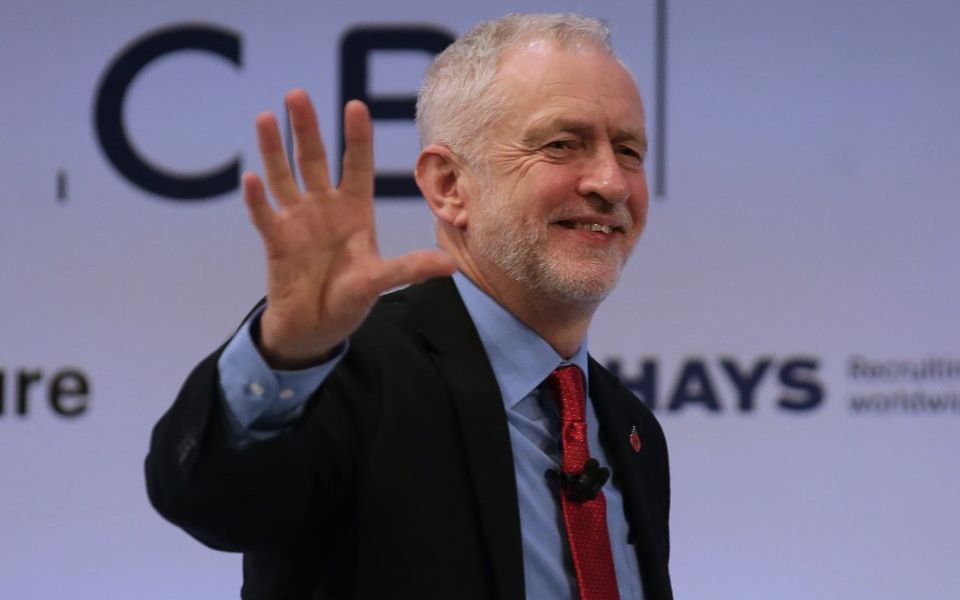Corbyn doesn’t want to replicate the City’s success – he wants to destroy it

London is unique as a global centre.
These words are spoken so often, both within the City and outside of it, that they have become a cliche.
But no other world-leading nation has its political capital, its financial centre, and its cultural heart all in the same city. The sectors feed and support one another, and a host of other professional services that have grown up around them: law, accounting, technology, insurance, consultancy, media.
Read more: DEBATE: Should the Bank of England move from London to Birmingham?
The concentration of these industries in one place, where you can travel from the boardrooms of top global banks to the seat of government in half an hour, is unlike anywhere else in the world.
And it is this exceptionalism that makes London appear invincible as a global business hub, even with the uncertainty surrounding Brexit.
Unfortunately, it is an exceptionalism the Labour party seems determined to destroy.
Two weeks ago, Labour leader Jeremy Corbyn launched a scorching attack on the banking sector. In a video on Twitter, he responded to warnings from Morgan Stanley that his policies would be a “bigger risk than Brexit”, boasting both to the bank and to the wider financial sector: “you’re right, we are a threat”.
Analysis of the economic risk posed by Corbyn and his socialist colleagues is inevitably dismissed as mainstream-media scaremongering. But, as the poet Maya Angelou so eloquently put it, “when someone shows you who they are, believe them the first time”.
Corbyn and his shadow chancellor John McDonnell have been showing the country who they are for decades, with their support for the likes of Cuba’s Fidel Castro and Venezuela’s Hugo Chavez – leaders who destroyed their countries’ economic potential with excessive government control. They have made no secret of the fact that they consider crashing the economy a fair price to pay for the fantasy of their socialist ideology.
Which brings us to this week, and the Labour party’s report on the UK’s financial system. It begins boldly, with the claim that “UK banks have helped to create a distorted economy”. Britain’s flagging productivity is raised, as is the equally legitimate issue of regional inequality.
And then comes the solution: move the Bank of England to Birmingham.
The old lady of Threadneedle Street, as the Bank is known, has resided at its current location for nearly three centuries. Suggesting its major functions should be moved is not just a non-starter in terms of cost, logistics, and practicality – it is an attack on the capital, and everything it stands for.
The role of the Bank of England is to supervise the nation’s financial institutions and keep its finger on the pulse of the economy.
Of course, the Bank already has regional offices, but moving the control centre away from the headquarters of the businesses and organisations it is meant to be monitoring is a recipe for disaster.
No one really believes that shifting civil servants a hundred miles will replicate the unique ecosystem of the capital and spur a technological revolution in another city.
At best, the major functions of the Bank would remain in the City, in practice if not formally, causing communication failures between London and other offices. At worst, the system would collapse, and the appeal of not only London, but also Britain, would diminish.
The aim of rebalancing the UK economy and encouraging investment in other regions is a worthy one. And there are ways the government could help – infrastructure, devolution, and more listening to what local leaders and industries say they need.
But make no mistake, this proposal is not about tackling regional inequality. It is about ripping the heart out of the City of London. If equality were to increase, it would be from dragging London down, rather than raising other areas up.
This, we know, has been Labour’s aim all along. At the party conference in September, McDonnell told adoring crowds that Labour was “ready” for the chaos that would inevitably follow its election – a run on the pound, investor panic, and a potential economic meltdown. That same week, it was revealed that a Labour adviser and self-identified “cybernetic communist” was “war-gaming” crashing the economy, running online simulations of the revolution against neoliberalism.
This may not be the intention of the vast majority of Labour voters or MPs, but it is the clear objective of the Corbyn-McDonnell leadership. Destroying London as a financial centre, by uprooting the Bank of England and eliminating the very qualities that make the capital so appealing to business, is a feature of their plans, not a bug.
Labour heavyweights like Corbyn and McDonnell don’t want London’s success replicated in the regions, even if that were a possibility. They want it gone. They hate the City for its brilliance, its relentless charge towards the future, and yes, its economic might, while they remain stuck in the 1970s.
Corbyn was right. His party is a threat – not just to the financial sector, but to the entire country.
Read more: Exclusive: Labour to meet Morgan Stanley after Corbyn's "threat" tweet